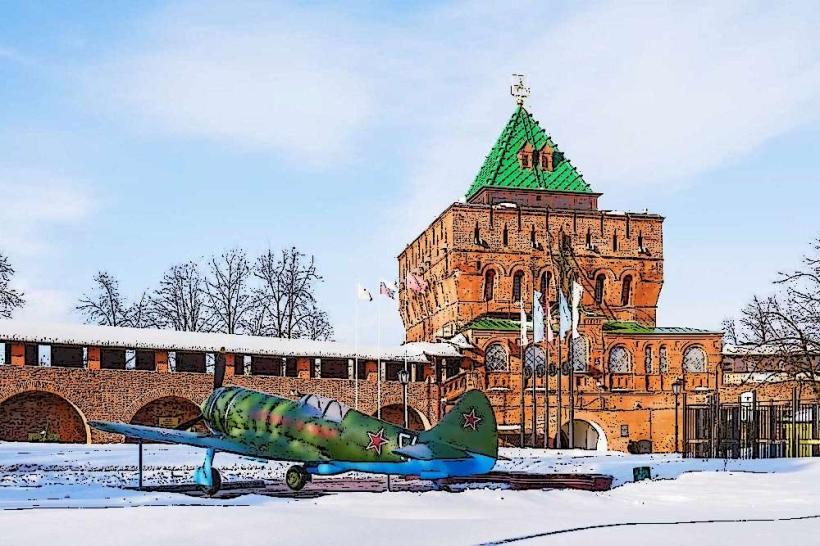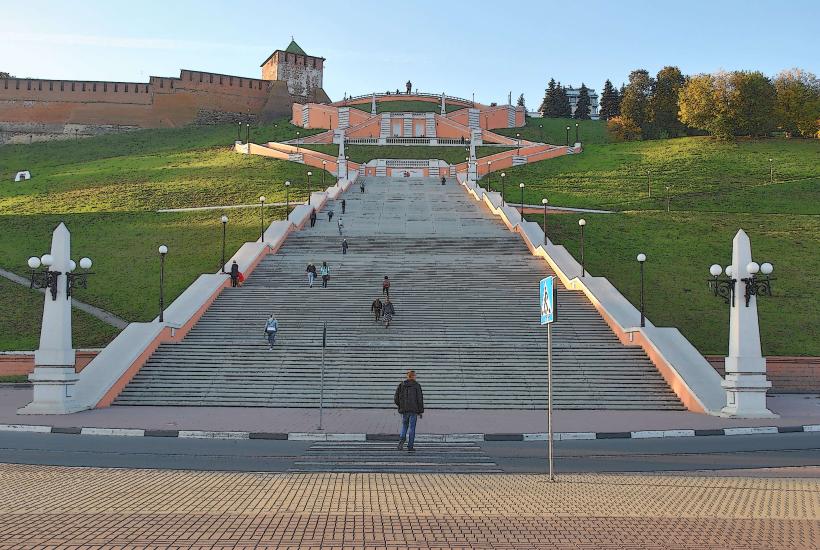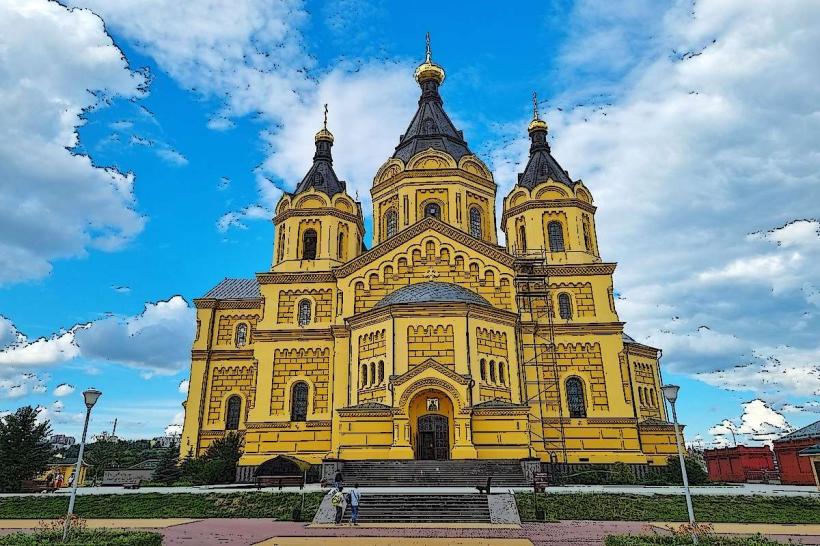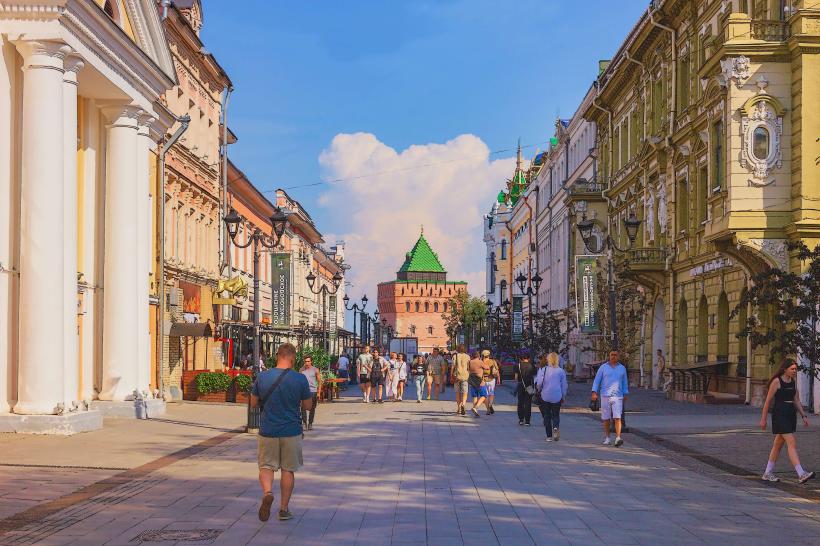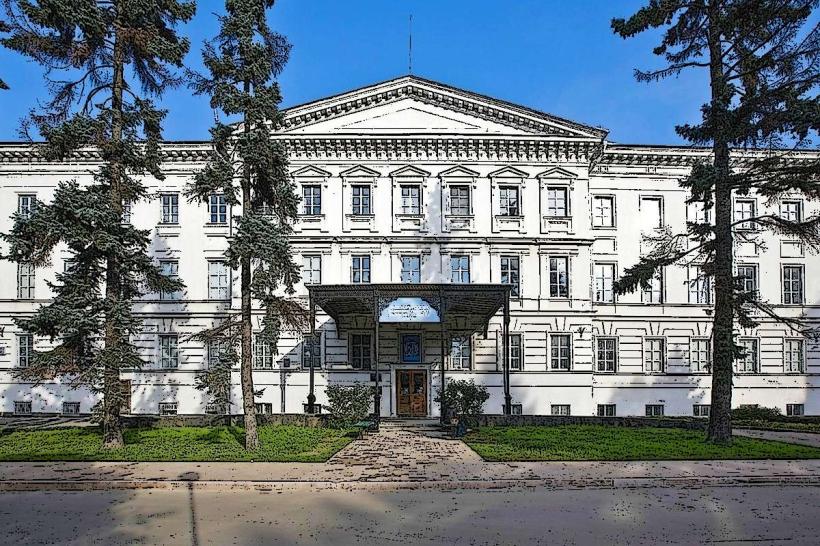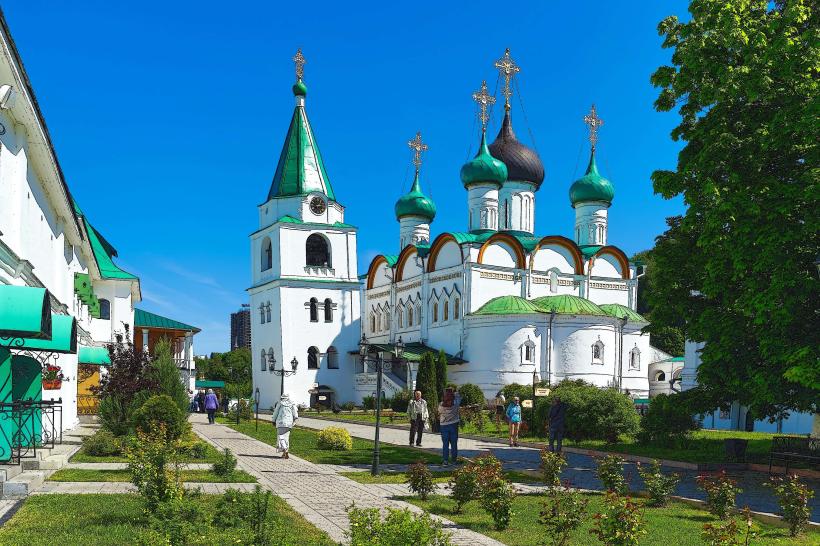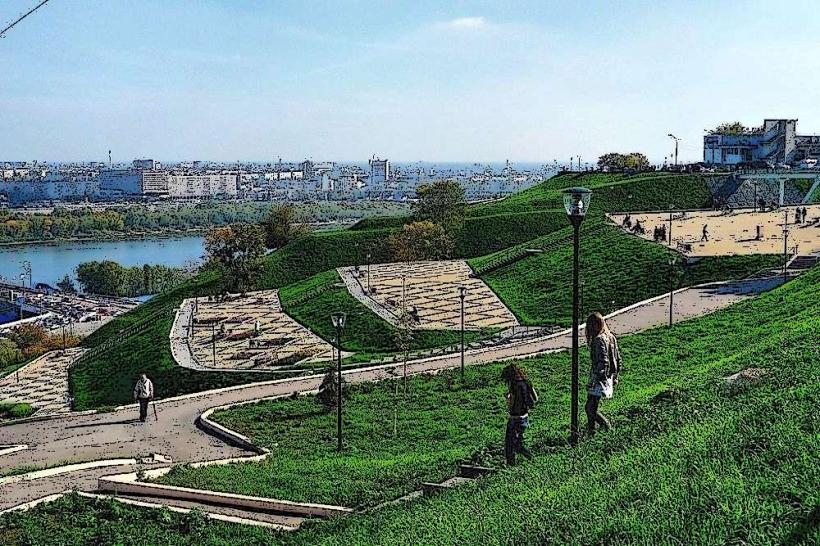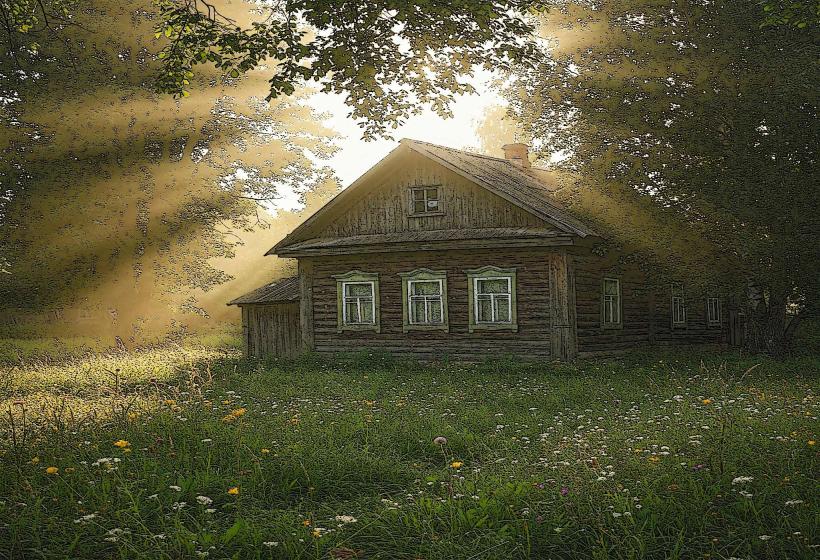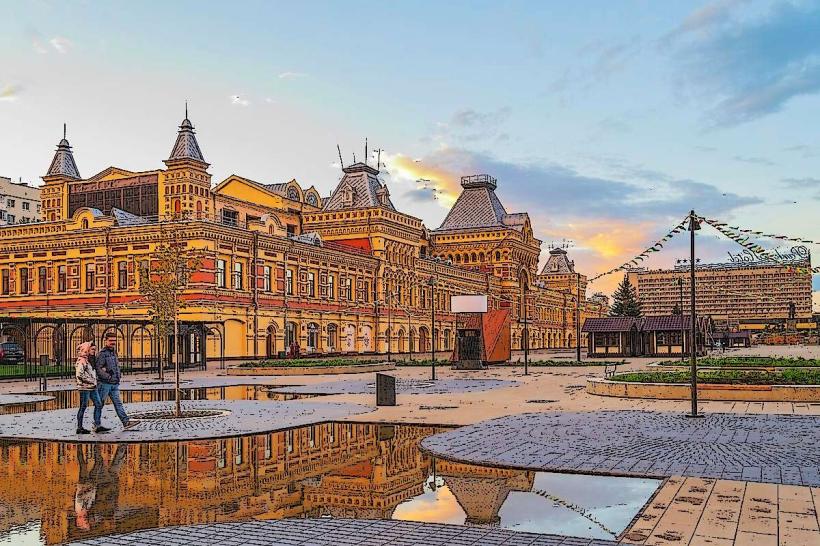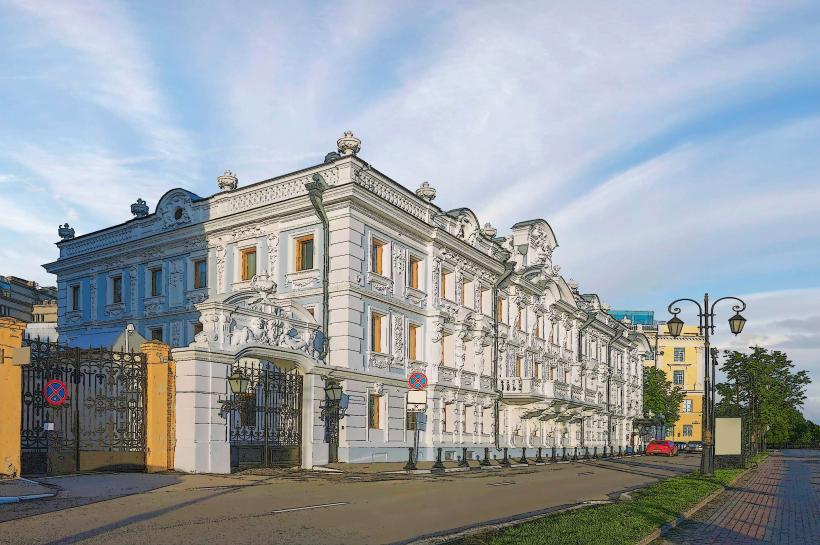Information
City: Nizhny NovgorodCountry: Russia
Continent: Europe
Nizhny Novgorod, Russia, Europe
Nizhny Novgorod serves as the administrative center of the Volga Federal District and is frequently cited as the "Pocket of Russia" due to its historical role as the empire's primary trade hub. It is situated at the strategically critical confluence of the Volga and Oka rivers, approximately 420 kilometers east of Moscow.
Historical Timeline
Founded in 1221 by Prince Yuri II of Vladimir, the city served as a key eastern fortress against the Volga Bulgars and Tatars. In 1612, it was the launching point for the volunteer army led by Kuzma Minin and Dmitry Pozharsky that liberated Moscow from Polish occupation. During the Soviet era (1932–1990), it was renamed Gorky after the writer Maxim Gorky and functioned as a "closed city" due to its massive military and automotive industries (GAZ). In 2026, it remains a center for high-tech engineering and nuclear research.
Demographics & Population
The metropolitan population is approximately 1.25 million as of 2026. The demographic is predominantly ethnic Russian (95%), with significant minorities of Tatars (1.4%), Mordvins, and Ukrainians. The city maintains a high density of industrial workers and technical researchers, with a median age of approximately 40 years.
Urban Layout & Key Districts
The city is divided by the Oka River into two distinct sections:
Upper City (Nagornaya): The historic and administrative center located on the high right bank. Includes the Kremlin and the main pedestrian streets.
Lower City (Zarechnaya): The industrial and commercial heart located on the low left bank. Includes the "Strelka" (The Spit), the Nizhny Novgorod Fair, and the Sormovo industrial district.
Top City Landmarks
Nizhny Novgorod Kremlin: A 16th-century red-brick fortress with 13 preserved towers.
Chkalov Staircase: A monumental flight of 560 steps in the shape of a figure-eight, connecting the Upper City to the Volga embankment.
Bolshaya Pokrovskaya Street: The primary pedestrian thoroughfare, known for its neoclassical architecture and street sculptures.
Alexander Nevsky Cathedral: A massive yellow-domed cathedral located on the Strelka.
Nizhny Novgorod Fair (Yarmarka): A 19th-century revivalist complex that was once the site of the largest trade fair in the world.
Nizhny Novgorod State Bank: A neo-Russian architectural masterpiece built to commemorate the 300th anniversary of the Romanov dynasty.
Transportation Network
Movement is supported by a two-line Metro system, trams, and buses. In 2026, a single trip costs approximately 35–40 RUB ($0.40–$0.45). The Nizhny Novgorod Cable Car connects the city to the town of Bor across the Volga, featuring the longest unsupported span over water in Europe. High-speed Sapsan and Lastochka trains connect to Moscow in approximately 3.5 to 4 hours.
Safety & "Red Zones"
Travel advisories from Western nations (US, UK, Australia) remain at "Do Not Travel" in 2026. Foreigners face risks of arbitrary detention and harassment. Public political demonstrations are "red zones" and result in immediate arrest. General street crime is low, but travelers should be vigilant against pickpocketing in the Kanavinsky district and near the railway station. GPS jamming is frequent near the Kremlin and military-industrial sites.
Digital & Financial Infrastructure
Foreign-issued Visa and Mastercard cards do not work. Travelers must use cash (RUB) or obtain a local MIR card. Internet speeds are high (100+ Mbps), but access to Western social media and news platforms is blocked, necessitating a VPN. Biometric data is required for local SIM cards.
Climate & Air Quality
The city has a moderate continental climate. Winters (December–February) are snowy and cold ($−8^{\circ}\text{C}$ to $−15^{\circ}\text{C}$); summers are warm ($18^{\circ}\text{C}$ to $25^{\circ}\text{C}$). Air quality is generally moderate, though the industrial Lower City can experience localized pollution from automotive and chemical plants.
Culture & Social Norms
The city is deeply connected to the legacy of Maxim Gorky. Tipping of 10% is standard. Handshakes are the standard greeting; it is considered bad luck to shake hands across a doorway. Dress code is casual-smart. Alcohol sales are restricted after 22:00 or 23:00 depending on local regulations.
Accommodation Zones
Minin and Pozharsky Square / Bolshaya Pokrovskaya: Stay here for maximum walkability to the Kremlin and historical sites.
Strelka / Fair Area: Stay here for modern hotels and proximity to the stadium and river cruise terminals.
Local Cost Index
1 Espresso: 180–220 RUB ($2.00–$2.40)
1 Standard Lunch: 500–750 RUB ($5.50–$8.20)
1 Cable Car Trip to Bor: 100 RUB ($1.10)
Nearby Day Trips
Arzamas: A historic town famous for its numerous churches and cathedrals (110 km).
Gorodets: One of the oldest towns on the Volga, known for traditional gingerbread and wood carving (60 km).
Semyonov: The center of Khokhloma wood painting (70 km).
Diveyevo: A major Orthodox pilgrimage site housing the Seraphim-Diveyevo Monastery (170 km).
Facts & Legends
A verified historical oddity is that Nizhny Novgorod launched the first Russian tram system in 1896. A prominent local legend concerns the "Library of Ivan the Terrible," which some believe is hidden in a secret vault beneath the Kremlin walls. The city is also the birthplace of the Khokhloma style of painting, characterized by its vivid red, gold, and black floral patterns on wooden tableware.

